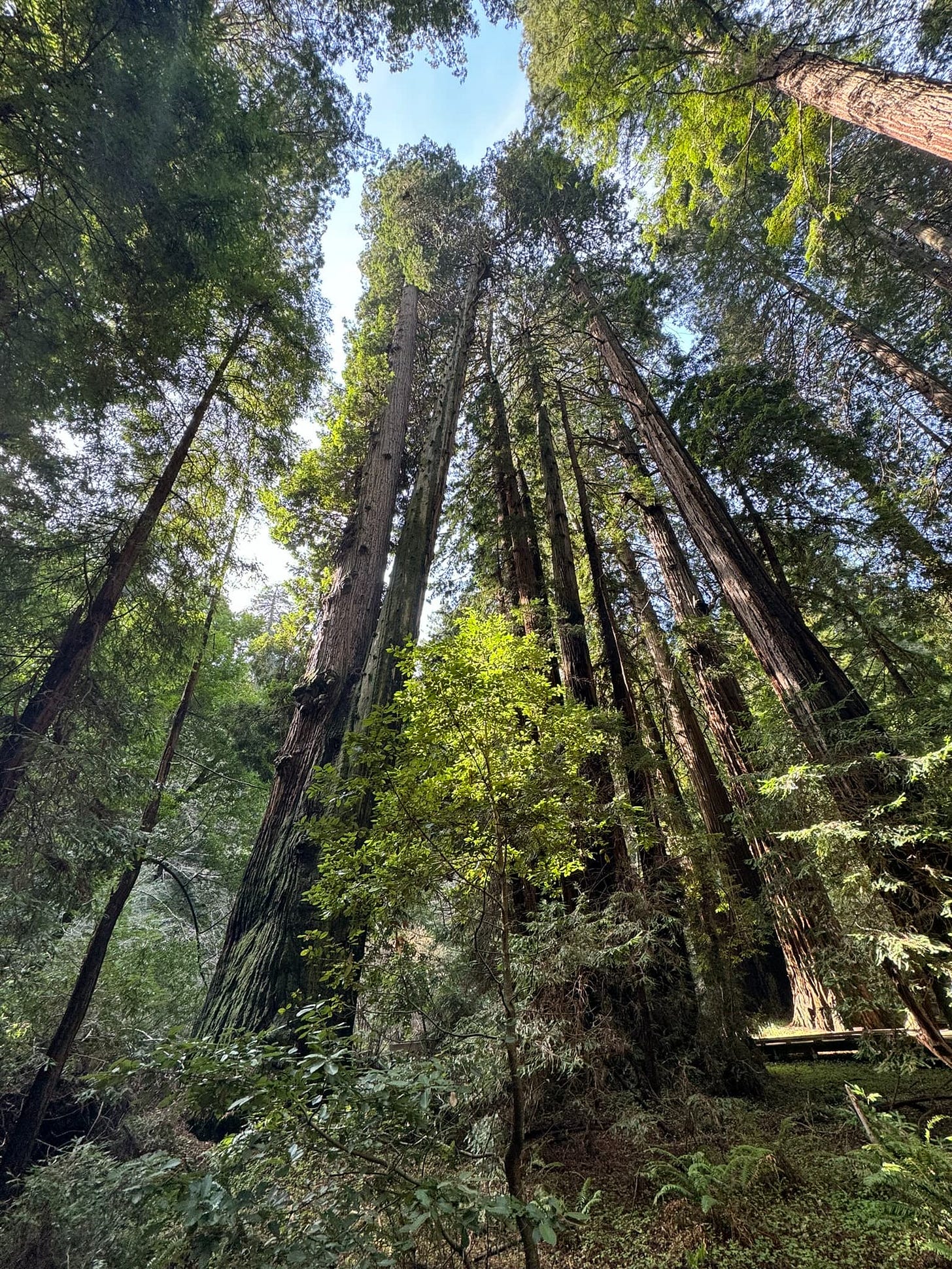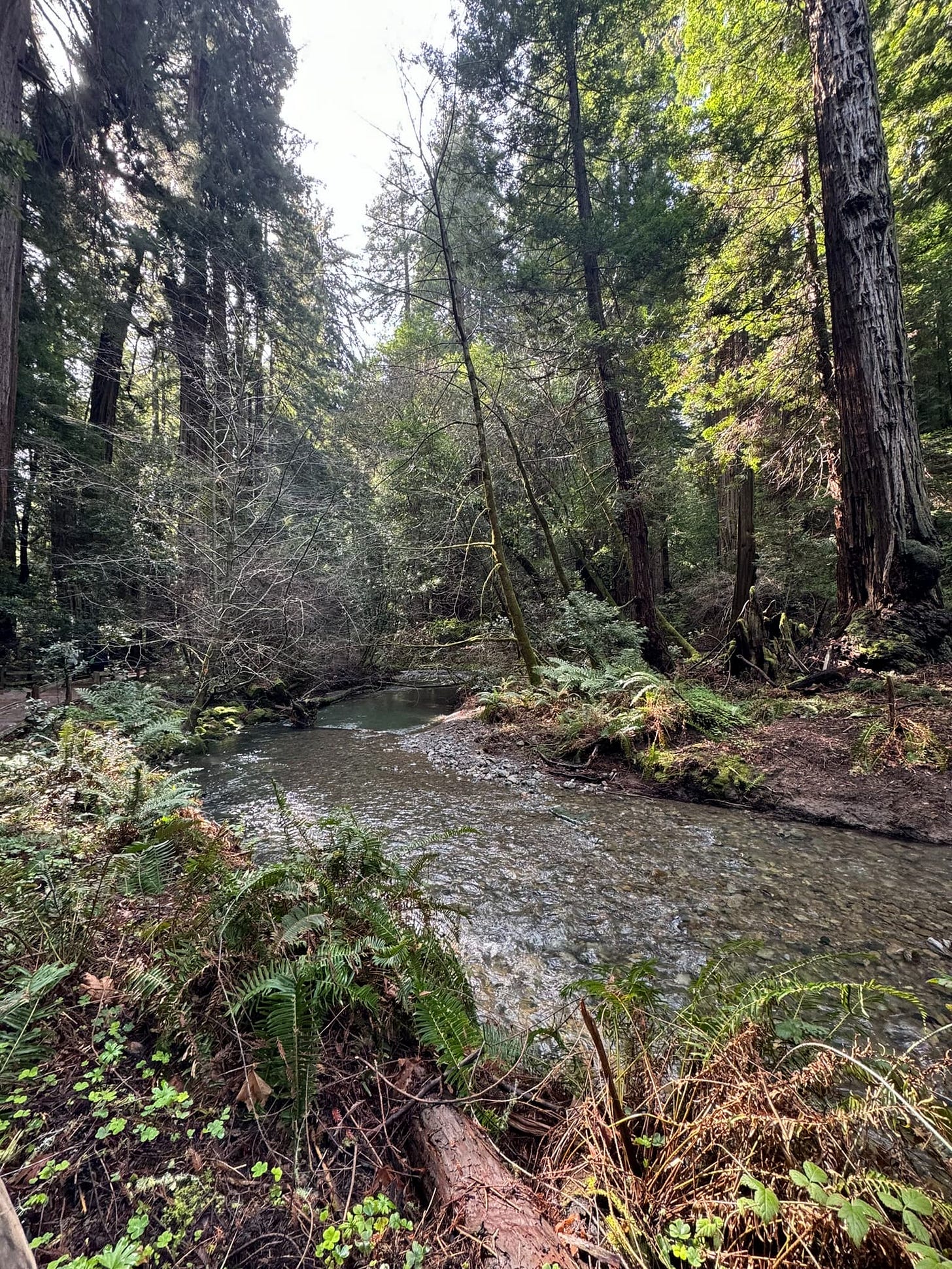🦊 Capitalism Killed the Salmon
I went into the woods in search of solace. There, after many nights looking down at my phone, I stretched my neck and looked up at those tall trees, those magnificent giants, the redwoods. I kept walking until I reached the fast-flowing stream that cut through the woods.
There was a sign. It said that the salmon were dying, and the park people were working hard to save them.
Save the salmon? Why do they need saving? I wondered. It’s been raining nonstop for months. I assumed at least the fish were enjoying it.
Let me tell you how we killed the salmon.
This tale is part of a long line of repeating history, of humanity’s hubris hurting rather than helping.
You see, years ago, man came along and saw the salmon swimming upstream. “Wow, look at them go!” we said with wonder. “They keep swimming, even against the current. Our workers could learn a thing or two from them.”
“In fact,” we went on to say, “let’s clear the river so they’ll swim even further! Faster, and faster they’ll go! What an example they’ll be for our people.”
And so we “helped” them. We cleared away all the fallen logs. The rocks. The debris. The weeds. The nature.
We did it so the salmon could swim faster.
And then they died.
A great mystery!
It turns out that nature’s fallen pieces served a purpose. Those dead logs and debris slow down the current. The salmon used those calmer spots to rest and recuperate. Without the breaks, they swim themselves to death. To stay alive, they need rest.
Rest! Who knew?
Well, for one, Native tribes knew. They were here before us. They understand the land. They know how to protect it. They tried to teach us. “We are all salmon people,” they said. We chose not to listen.
We projected our capitalist mindset of endless work onto the salmon.
We forced the salmon to swim, and swim, and swim, until they couldn’t.
Don’t worry though, we’re helping the salmon again! But actually helping this time. (Maybe.)
If you visit Muir Woods in California, you’ll see a messy stream. Logs and rocks abound. You’ll also see signs apologizing for the mess, as though you are a guest coming to dinner in a dirty house. We’ve learned to let nature be, but we still apologize for it.
Thank God it is only the salmon that need rest.
Can you imagine what would happen if humans needed rest, too? We’d be in quite a bind!
After all, our society is built around work. We all need to work, and there’s always more work to do. (And our healthcare is only for workers, so if you’re not working, you might as well be dead!)
Even seasons, which all animals obey, don’t apply to us. Did you know we can work the same way every single day, month after month, year after year?
Yes, oh yes, we humans, you and I, we’re built different.
So let us keep clearing away those silly logs of joy, that ugly debris of rest, and preserve the holy river of infinite work, against which we shall swim, and swim, and swim, until . . .



Thank you for this. All too often we think we know best and end up making the situation worse, don't we -- for Nature, for others, for ourselves.
and capitalism has done yet more, of course: making estuaries where young salmon can more safely grow into grazing land for cattle; building dykes and dams to meet our own perceived "economic needs"; overfishing to make as much money as quickly as possible, it just goes on and on.
Robin Wall Kimmerer, in her book *Braiding Sweetgrass* has a poetic description of the relationship between the salmon and the First Peoples and the impacts on local ecologies.
Your story reminded me of her wisdom as well.